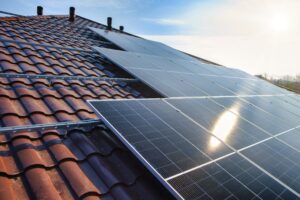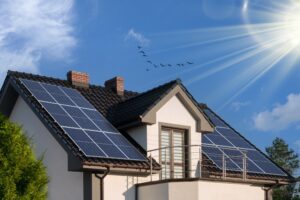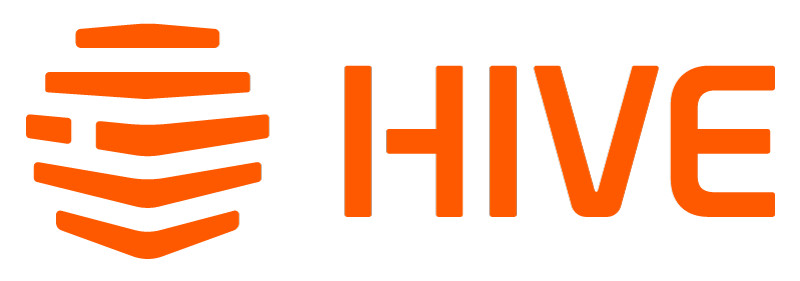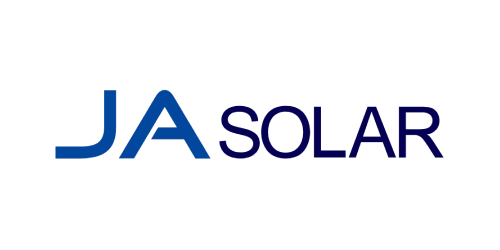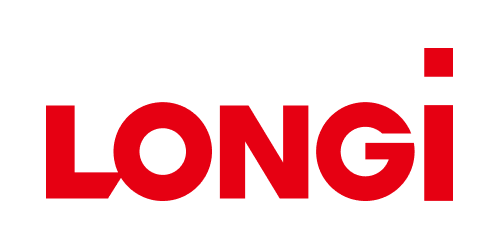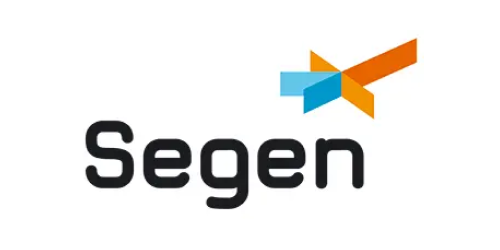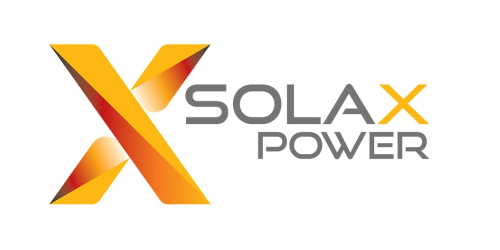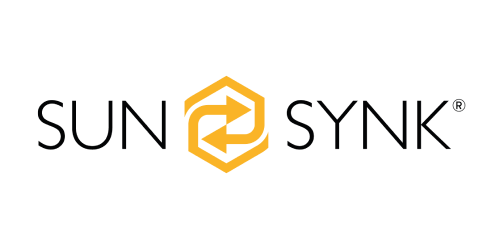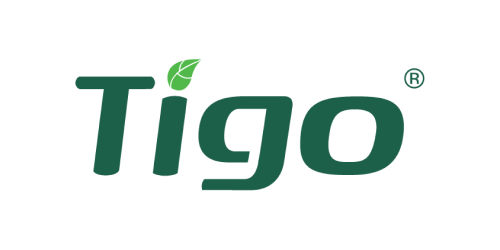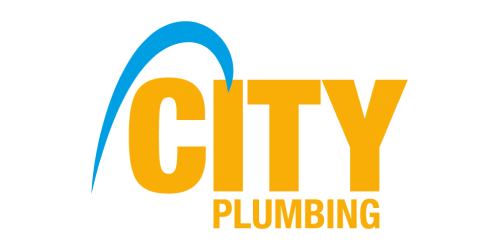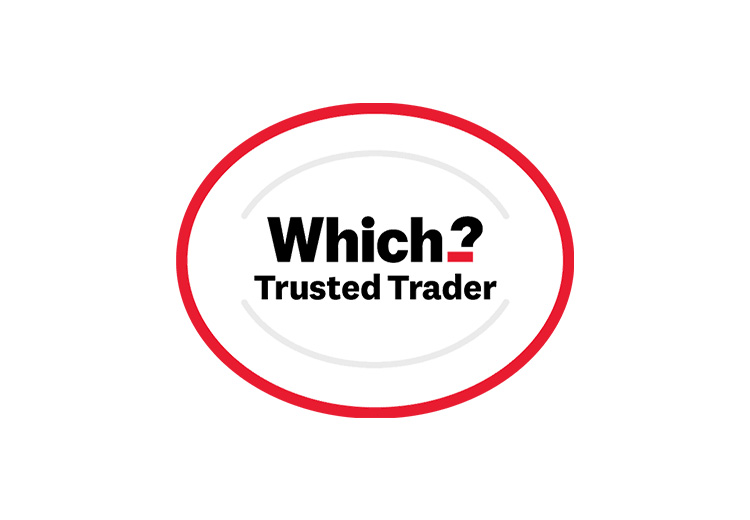As the UK strives for net-zero carbon emissions by 2050, switching to renewable energy is a top priority. However, solar panels cost thousands of pounds, and this prevents many homeowners and small businesses from going solar.
Power purchase agreements (PPAs) are one solution that helps overcome this problem. But PPAs are lengthy, complex and can be difficult to understand. This post cuts through the jargon to explain what you should know about them. You’ll then be better placed to decide whether a solar power purchase agreement could be right for you.
What Is A Power Purchase Agreement?
A power purchase agreement is a long-term contract between a producer of renewable electricity and a buyer.
These deals are increasingly popular with solar technology and among businesses and local councils. They provide a reliable, cost-effective means of decarbonising electricity. Homeowners can also sign up for a domestic power purchase agreement to get the assurance of long-term energy cost stability.
PPA contracts typically run for 10 to 25 years. Some types allow businesses and homeowners to install a solar energy system for free.
Types of PPAs
There are several types of power purchase agreements, depending on the location of the energy source and the way the electricity is delivered. Here are some common PPAs.
Physical PPA
With a physical PPA, solar power is delivered directly to the consumer through the grid. These contracts are flexible and can be customised. Fundamentally, the customer gets cheaper electricity while the seller has a guaranteed stream of income for the future.
The solar energy system is installed on the customer’s property at little or no cost to them, and they can then buy the electricity at a predetermined price. They don’t own the solar installation and aren’t responsible for maintenance. They get a Renewable Energy Guarantee of Origin (REGO) which confirms the power they’re buying is from a renewable source.
When the PPA ends, the customer can have the energy system removed, buy it at a significantly reduced rate, or extend the contract. Power purchase agreements may also be structured as a sleeved PPA.
Sleeved PPA
A sleeved PPA – also referred to as a direct PPA, retail PPA, or corporate PPA – is a three-way deal between a solar energy producer, an energy provider, and the customer. It allows solar power generated at one site to be “sleeved” to other locations with no physical connection to it.
The electricity is delivered from the grid to the customer through an approved intermediary utility supplier, which deals with transfer of money and energy on behalf of the buyer (the offtaker). If the energy produced isn’t enough to meet the buyer’s needs, the utility is responsible for supplying additional power.
On-Site And Off-Site Solar Power Purchase Agreements
Power purchase contracts between solar energy producers and buyers can be on-site or off-site agreements. On-site PPAs are ideal for rural locations with plenty of space. Off-site PPAs are designed mainly for urban locations with little space.
On-Site PPA
On-site power purchase agreements are used when energy is generated and consumed at the same location. The electricity can come from a large-scale rooftop solar panel installation on a commercial or industrial site or from a ground-mounted system on adjacent land.
Off-Site PPA
Off-site sleeved power purchase agreements are often used for large-scale solar projects when the electricity is generated and consumed at different locations. Off-site PPAs allow businesses to access solar energy from external projects located elsewhere and they can connect to large solar farms across the country.
Virtual PPA
Virtual power purchase deals – also called financial or synthetic PPAs – were created as an alternative to physical PPAs.
A virtual power purchase agreement (VPPA) allows the buyer to get solar power without physically taking delivery of it. Instead, the agreement concerns electricity spot prices – market prices based on supply and demand. When this price is higher than agreed, the customer receives money from the power producer. If the price is lower, the customer compensates the producer.
VPPAs are popular with companies looking to decarbonise operations but lacking the space or infrastructure to install a solar energy system. They buy solar attributes rather than the electricity itself and get credits for the energy that’s generated, giving them renewable energy options at low stakes.
Virtual power purchase agreements can be structured as a fixed-price contract for a set period or with variable pricing based on market conditions.
Portfolio PPA
A portfolio power purchase agreement allows the offtaker to access electricity from a selection of solar energy sources rather than a single project.
Companies turn to these solar PPAs as a cost-effective means of opening up renewable energy options when they don’t have the resources to develop their own solar energy production. The portfolio provider sources and manages the various solar projects and the buyer pays a fixed price for the electricity.
Portfolio deals come in different forms. They can, for example, include a combination of long-term and short-term contracts, and a mix of variable and fixed pricing.
Block Delivery PPA
With a block delivery PPA, the offtaker gets solar power delivered at prearranged times rather than continuously. This helps the buyer meet their renewable energy needs while providing predictable income for the producer.
Block delivery PPAs are often used by community solar projects, where the amount of electricity generated varies over time. They can buy electricity when supply is plentiful and costs come down.
Solar Power In PPAs
Solar energy systems are common in physical PPAs because the technology is relatively inexpensive.
Solar power purchase agreements have become a popular way for consumers to access the benefits of solar energy. They allow businesses and homeowners to install solar panels with no upfront cost or for a minimal fee.
Solar PPAs cut energy bills significantly by reducing reliance on the National Grid and play an important part in offsetting carbon emissions from fossil fuels, which drive climate change.
Consumers get a solar photovoltaic (PV) installation for free or at minimal cost. They then have the opportunity to make long-term savings as they buy low-cost electricity from the energy producer or utility company. And they don’t have to worry about maintenance or repair costs. The provider is responsible for these for the duration of the contract.
Solar Power Purchase Agreements For Homeowners
Solar panels allow homeowners to generate their own free electricity from an abundant source of renewable energy – the sun.
Solar technology is comparatively inexpensive. But installing solar panels doesn’t come cheap. Solar panel supply and installation costs range from around £4,200 for a smaller home, to £7,000 for a three-bedroom house, and £9,800 for a four-bedroom property. Many homeowners find these prices prohibitive, especially when household budgets are being squeezed by the high cost of living.
However, upfront costs with a solar panel power purchase agreement are minimal. In effect, you lease the airspace above your roof to the system provider, who installs the solar panels at little or no charge to you.
You then avoid the risk of rising energy costs in a volatile market, with the opportunity of long-term savings.
Solar Power Purchase Agreements For Businesses
Power purchase agreements are gaining momentum in corporate sustainability policies to reduce carbon emissions. Businesses can avoid fluctuating electricity prices that eat into profits and may present operational issues, and power producers get a guaranteed source of income that facilitates solar expansion by making it easier to get financing.
Businesses with high demand for electricity benefit from renewable energy with no upfront investment. They also avoid wholesale price volatility and can implement more sustainable business strategies with little risk.
Alternatives To Power Purchase Agreements
Various alternatives to power purchase agreements are available, including solar subscriptions, low-carbon contracts, and green tariffs.
Solar Subscriptions
Traditionally, you make full payment for solar panel installation upfront. Solar subscriptions avoid this. And they’re now being rolled out in the UK following their popularity in other countries.
Solar subscriptions – or solar leases – offer similar benefits to power purchase agreements. They allow consumers to spread the cost of solar panels while immediately saving money on energy bills.
Various solar panel providers are offering different subscription deals. For instance, Effective Home’s Energy Shield solar subscription is a five-year, fixed-term agreement. You pay a £99 onboarding fee instead of the thousands of pounds it would cost to buy your solar panels.
The company retains ownership of the panels and maintains them at no extra cost to customers, who buy the energy their solar panels generate at prices starting from 19.9p per kilowatt hour.
Low-Carbon Contracts
The Contracts for Difference (CfD) scheme, established in 2014, encourages investment in renewable energy projects in the UK that minimise electricity costs for consumers.
These contracts take the form of an agreement between the government-owned Low Carbon Contracts Company (LCCC) and low-carbon electricity producers.
When the market price for electricity is less than the price agreed in the contract, the company compensates the energy producer. If the market price is higher, the producer pays the company the difference.
Green Tariffs
Green tariffs are offered by the vast majority of energy suppliers to businesses and homeowners as an alternative to power purchase agreements. The provider buys renewable energy from sources like a solar farm to match the energy the customer uses. This energy is then fed back into the National Grid.
Green tariffs help to prevent electricity from high-carbon sources taking up a higher percentage of the grid.
Final Thoughts On PPAs For Solar
Under a power purchase agreement, you can install solar panels at little or no cost and you won’t have any maintenance or insurance concerns. Solar panels could add value to your home and there are flexible options when your PPA comes to an end.
However, power purchase agreements aren’t for everyone. PPAs are long, complicated legal documents that can be hard to comprehend. If you do commit to the deal, you may still be vulnerable to electricity price increases, and there may be penalties if you pull out of the contract early. Furthermore, if you want to sell your home the buyer has to agree to take over the PPA.
Various other ways are available to go solar with minimal upfront cost, including the new concept of solar subscriptions, which we’re incredibly proud to offer right here at Effective Home! Contact us today and find out how we can help you go solar.
- Create a Tailored Quote Based On Your Circumstances
- Takes Less Than 2 Minutes
- Fixed-Online Quotes



